Oasis - (What's The Story) Morning Glory
by Benjamin Howarth
published: 23 / 10 / 2015
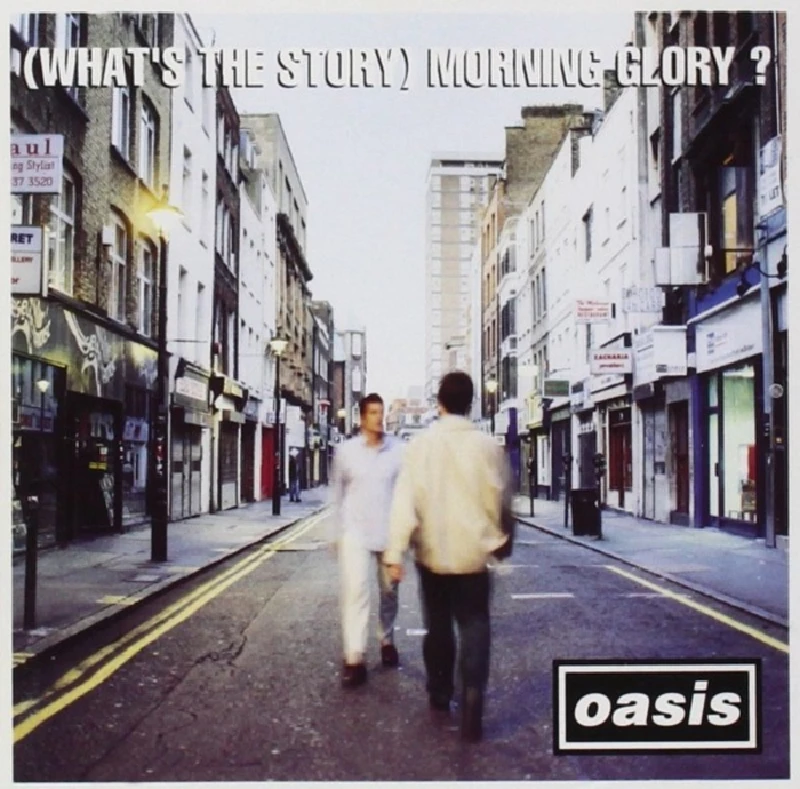
Label:
Select Label
Format: N/A
intro
In our 'Re:View' section, in which we look back at albums from the past, Ben Howarth reflects on Oasis' iconic second album, '(What's The Story) Morning Glory', which was released twenty years ago
Twenty years ago, Oasis released '(What's The Story) Morning Glory'. I took a detour into town on the day it came out, having been abstaining from football stickers for weeks to make sure I had enough money. Over the next three months, Oasis proceeded to take over the music world. At home, at school, on television, in town – it felt like everybody was listening to that album. As with Pink Floyd and 'The Dark Side of the Moon' twenty years earlier, Oasis sold many, many more albums than any of their peers could even dream. And, as was also the case with 'The Dark Side...', Oasis sold those albums without getting a critical rubber stamp first – reviewers suggesting they'd failed to live up to their early promise. But the audience comprehensively vetoed their judgement. Neither album will ever be seen as 'cool', but they both remain textbook examples of how to make a rock album to play over and over again. In indie circles, there is still suspicion over Oasis' blatant shot for fame and glory. We now know, of course, that while indie-label Creation was nominally their record label, their contract was really with Sony (who loaned them back, knowing that the indie-cred Creation gave them was worth its weight in marketing budgets). There is clearly no moral purpose behind Oasis, but nor was there any dishonesty or cynicism either. They delivered exactly what they said they would. Perceptions of this album were later tainted by the much weaker music that followed, which tempts you to see Britain's brief wave of Oasis-mania as a historical accident. That Oasis ran out of ideas and re-emerged with a pale imitation of themselves isn't in dispute. They were a band with only a few ideas (not unlike the Stone Roses or the Sex Pistols). But, my, what great ideas. In 1996 and 1997, many tried to replicate Oasis' winning formula. None came even close. When they went into Monmouth studios in May 1995 (with 'Some Might Say' at number one and the unfashionable Blackburn proving you could indeed buy success by winning the Premiership title), Oasis were on an obvious roll. They were ready to step into the one-year void between the break up of Take That and the emergence of the Spice Girls, becoming not just a band, but an all-conquering pop music phenomenon. They'd established an identity through a distinctive logo and sleeve art. Their gigs were getting bigger and bigger (Earl's Court was followed by the triumphant homecoming at Maine Road). Their debut album had topped the charts and a run of classic singles ('Live Forever', 'Cigarettes and Alcohol' and 'Whatever') took them ever closer to number one (to put that in context, the Stone Roses peaked at number 8 and the Smiths never bettered number 10). This being the 1990s, that meant that even before this album's release, Oasis had piqued the tabloids' interest – they'd already sacked a drummer, been deported from Amsterdam and almost broken up in the studio. Then came Noel's idiotic (and uncharacteristic) comments wishing Aids on two members of Blur, followed by the two bands' North/South, Indie/Major, school leavers/graduates chart battle. Temporarily, it looked as if Oasis 'lost' that fight. But, when 'Wonderwall' arrived, three songs into their new album, it was clear Oasis had a song that was going to keep them in the public eye for the rest of the decade. I still remember the first time I heard it – the opening guitar chords reminded me of the earlier hit 'Whatever' (a non-album single I'd been surprised to find missing from the tracklist of 'Morning Glory'), but from there came a dazzlingly fresh and original melody. I immediately wanted to hear it again, which for me meant rewinding the tape and trying to find those guitar chords again. My desire to play this song over and over again was pretty common – it became one of the most successful singles of all time. Amazingly, it never actually reached number one. But, 'Wonderwall' was only pipped to the top of the charts by Robson and Jerome, two actors doing barely passable covers of sixties hits (Jerome was clearly taking notes from Oasis, though, as there is more than a hint of the Gallagher brothers in his portrayal of the sellsword Bronn in 'Game of Thrones') – but where most songs spend a few weeks in the charts and then disappear, 'Wonderwall' hung around in the top ten for months. People couldn't get it out of their heads – and they couldn't resist buying it. The question stopped being whether Oasis could outsell Blur, but whether they could outsell Michael Jackson (they could). Even today, the simple brilliance of 'Wonderwall' hasn't been completely spoiled by the many millions of dodgy cover versions knocked out by buskers and open-mikers. It hasn't even been spoiled by the 'tasteful' covers by supposedly trendier artists – Ryan Adams started a regretful trend for covering this song without the genius chord sequence, which totally defeats the point. It may have been a while since you last played the original version of this magnificent song. Why not put it on now? You won't be disappointed. Very little of this music would have sat as comfortably on 'Definitely Maybe' – the influence of the Stone Roses and some of Oasis' Creation contemporaries on their sound was washed away, as new drummer Alan White gave Noel the confidence to reach for the big, booming glam-rock he'd not been able to conjure on the band's debut. This was aided by the controversial 'Brickwalling' recording technique, which makes 'Morning Glory' one of the loudest albums in anyone's collection – sound geeks might be interested to know that it is exactly double as loud as the Stooges' 'Raw Power' (which begs the question of whether the Gallagher millions will eventually be used paying off noise-induced hearing loss compensation claims). While 'Definitely Maybe' sounded top-heavy, with layers of guitar effectively doing the rhythm section's jobs for them, it is booming drums that define the sound here. Pumped right to the top of the mix on 'Hello' and the tub-thumping 'Roll With It', they allow two comparatively unadventurous melodies to be carried along on sheer bravado (no wonder the irrepressible Andrew 'Freddie' Flintoff chose 'Roll With It' to pump himself up before a long bowling spell in the 2005 Ashes). Conversely, the album's only slight mis-step, the overlong 'Hey Now!', would have been one of the stronger tracks on 'Definitely Maybe', but its stereotypical 'indie' sound fits in less well here. So side one is loud, audacious and catchy, with the magical 'Wonderwall' in between. But, the second half is even more flawlessly executed. The swaggering 'Some Might Say', one of two number one singles, segues into the wistful 'Cast No Shadow', dedicated to the Verve's Richard Ashcroft and obviously influenced by his work. There follows 'She's Electric', a jaunty melody with a trademark Noel Gallagher guitar solo, and a surprisingly effective falsetto from Liam. Noel, a keen Smiths fan, spotted how the intensity of 'The Queen is Dead' is only improved by its light-hearted moments, so positions this jaunty ditty as a lead-in to the album's two guitar epics, the title track and the epic, shimmering 'Champagne Supernova' (where Paul Weller drops by to lend his hands on lead guitar). Oasis talked so often about the Beatles that accusations of plagiarism seemed like water off a duck's back. The Gallaghers loved being told they sounded like their favourite band. In fact, it is surprising how little this album reminds you of the Beatles. At the top of their form, Oasis mastered the trick of borrowing from so many different bands, they ended up sounding like none of them. What makes Noel Gallagher different is that he seems exclusively influenced by bands who were universally popular – no cult heroes here. In the long term, it was a weakness that stopped Noel taking his band in a new direction. But here, it's a huge strength and gives each song an immense sense of purpose. It helps, also, that Noel wrote tunes around which he built guitar lines. It means that, whatever the musical limitations of his band, the album never repeats itself. If lyrics are your primary interest in listening to music, you probably aren't an Oasis fan. Needless to say, most of them make very little sense. Drug references abound as the album takes a surprisingly dark turn, and the lyrics betray a suggestion that Noel has already realised the fame he was dreaming of an album ago may not be all he hoped for. But, after all, the lyrics are just there to give Liam something to sing, and the dark side they hint at wouldn't affect the quality of the music for a few more years. This album demonstrates Oasis at their most focused. 'Wonderwall' was recorded from start to finish in a few hours, while Noel wrote 'Cast No Shadow' on the train to the studio, recording it as soon as he arrived. Many suggest that the album could have been even better, given how many of the B-sides from this era had become standards. Imagine, indeed, substituting 'Acquiesce', 'Rocking Chair' and 'The Masterplan' for 'Hello', 'Hey Now' and 'She's Electric'. A better tracklist, yes. But a better album? I'm less sure. So many opinions about Oasis seem formed without listening to the music, and – in fact – coming back to this album as it nears its second decade, you seen an obvious internal logic to the tracklist and the lyrics. The 'big themes' tackled on those three B-sides would have been out of place. Within a year, Oasis gigs became synonymous with pissed-up lads throwing bottles of piss. Within two years, the 'Oasis sound' became a cliché as a litany of imitators and then ultimately Oasis themselves tried and failed to recapture the magic of 'Morning Glory'. Noel Gallagher himself started telling the press he preferred the (comparatively patchy) debut album, perhaps dreaming of a time when he had it all to prove and all still to gain. Ignore all that. This album remains glorious. Played as a whole, it's an absorbing, uplifting listen – marching relentlessly to its peak as 'Champagne Supernova' plays out. It defies criticism. Oasis made all this seem ridiculously simple, and yet in the two decades that have followed, through numerous fads and phases, no band has come close to replicating the universal appeal of this record. The real reason Oasis found it so hard to follow up this album is that they'd so obviously already cracked it.
Track Listing:-
Band Links:-
http://www.oasisinet.comhttps://www.facebook.com/OasisOfficial
http://oasisofficial.tumblr.com/
https://twitter.com/oasis
Picture Gallery:-
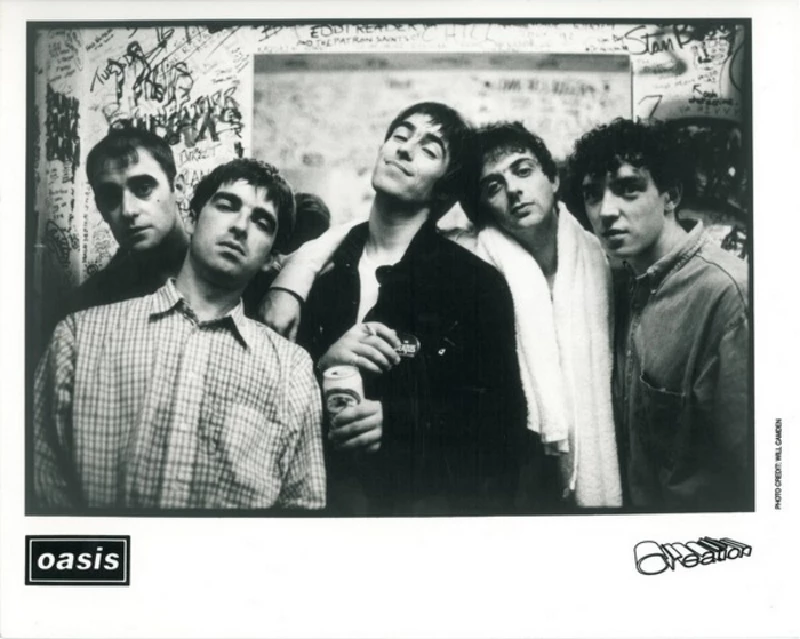
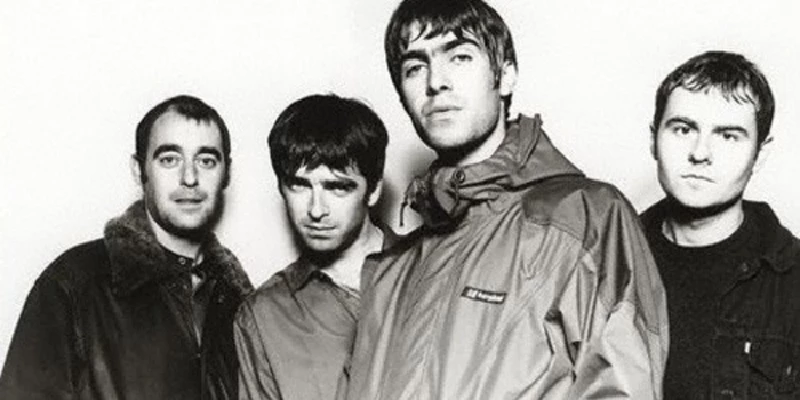
live reviews |
|
Metro FM Arena, Newcastle, 13/7/2005 |
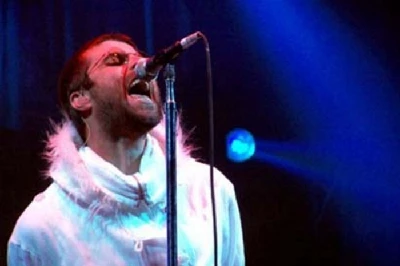
|
| Oasis have attracted a lot of bad press in recent years. Jonjo McNeill, however, finds them back on fiery form at one of three sold out shows at Newcastle's Metro FM Arena |
| London Finsbury Park, 5/7/2002 |
favourite album |
|
Knebworth 1990 (2021) |
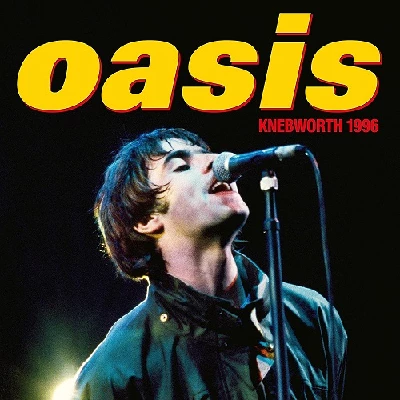
|
| Zena Greig enjoys Oasis' new double live CD which captures the two infamous sell-out concerts they played at Knebwoth in 1996. |
| Be Here Now (2016) |
features |
|
Oasis, Earl's Court, London, 1995 (2012) |
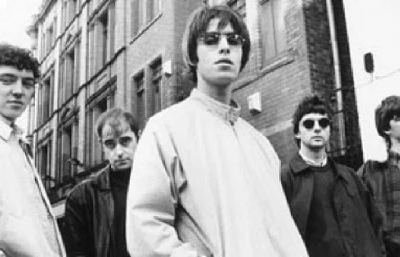
|
| Anthony Dhanendran writes, in our 'Gig of a Lifetime' series, of seeing Oasis in 1995, at a stadium show at the Earl's Court Arena in London. |
reviews |
|
Heathen Chemistry (2002) |
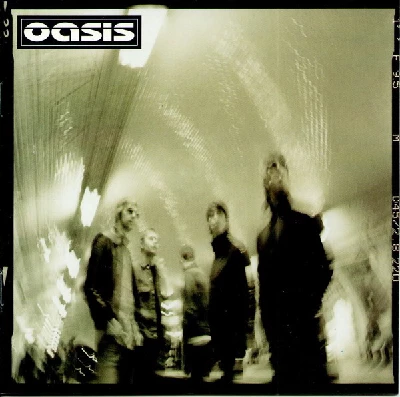
|
| Predictably catchy, but uninspiring and unoriginal jukebox pop from the Gallagher brothers |
most viewed articles
current edition
Carl Ewens - David Bowie 1964 to 1982 On Track: Every Album, Every SongArmory Show - Interview with Richard Jobson
John McKay - Interview
Colin Blunstone - Thalia Hall, Chicago, 16/7/2025
Billie Eilish - O2 Arena, London, 10/7/2025
Bathers - Photoscapes 1
Visor Fest - Valencia, Spain, 26/9/2025...27/9/2025
Loft - Interview
Sir Tim Rice - Interview
Robert Forster - Interview
previous editions
Manic Street Preachers - (Gig of a Lifetime) Millennium Stadium, Cardiff, December 1999Heavenly - P.U.N.K. Girl EP
Beautiful South - Ten Songs That Made Me Love...
Boomtown Rats - Ten Songs That Made Me Love....
Peter Perrett - In Dreams Begin Responsibilities Interview Part One
Oasis - Oasis, Earl's Court, London, 1995
Trudie Myerscough-Harris - Interview
Coldplay - Wembley Arena. London, 16/8/2022
Prolapse - Interview
Pixies - Ten Songs That Made Me Love...
most viewed reviews
current edition
Davey Woodward - Mumbo in the JumboSick Man of Europe - The Sick Man of Europe
Lucy Spraggan - Other Sides of the Moon
Amy Macdonald - Is This What You've Been Waiting For?
Suzanne Vega - Flying With Angels
Phew, Erika Kobayashi,, Dieter Moebius - Radium Girls
Bush - I Beat Loneliness
Blueboy - 2
Alice Cooper - The Revenge of Alice Cooper
Cynthia Erivo - I Forgive You
related articles |
|
Andy Bell: Interview (2015 |
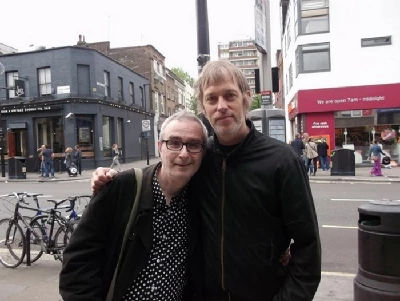
|
| Anthony Strutt speaks to Andy Bell, the guitarist with Ride, in an archive interview from 1997 about his then new band Hurricane #1, and then again before one of Ride's recent reformation gigs at The Roundhouse in london |
Pennyblackmusic Regular Contributors
Adrian Janes
Amanda J. Window
Andrew Twambley
Anthony Dhanendran
Benjamin Howarth
Cila Warncke
Daniel Cressey
Darren Aston
Dastardly
Dave Goodwin
Denzil Watson
Dominic B. Simpson
Eoghan Lyng
Fiona Hutchings
Harry Sherriff
Helen Tipping
Jamie Rowland
John Clarkson
Julie Cruickshank
Kimberly Bright
Lisa Torem
Maarten Schiethart